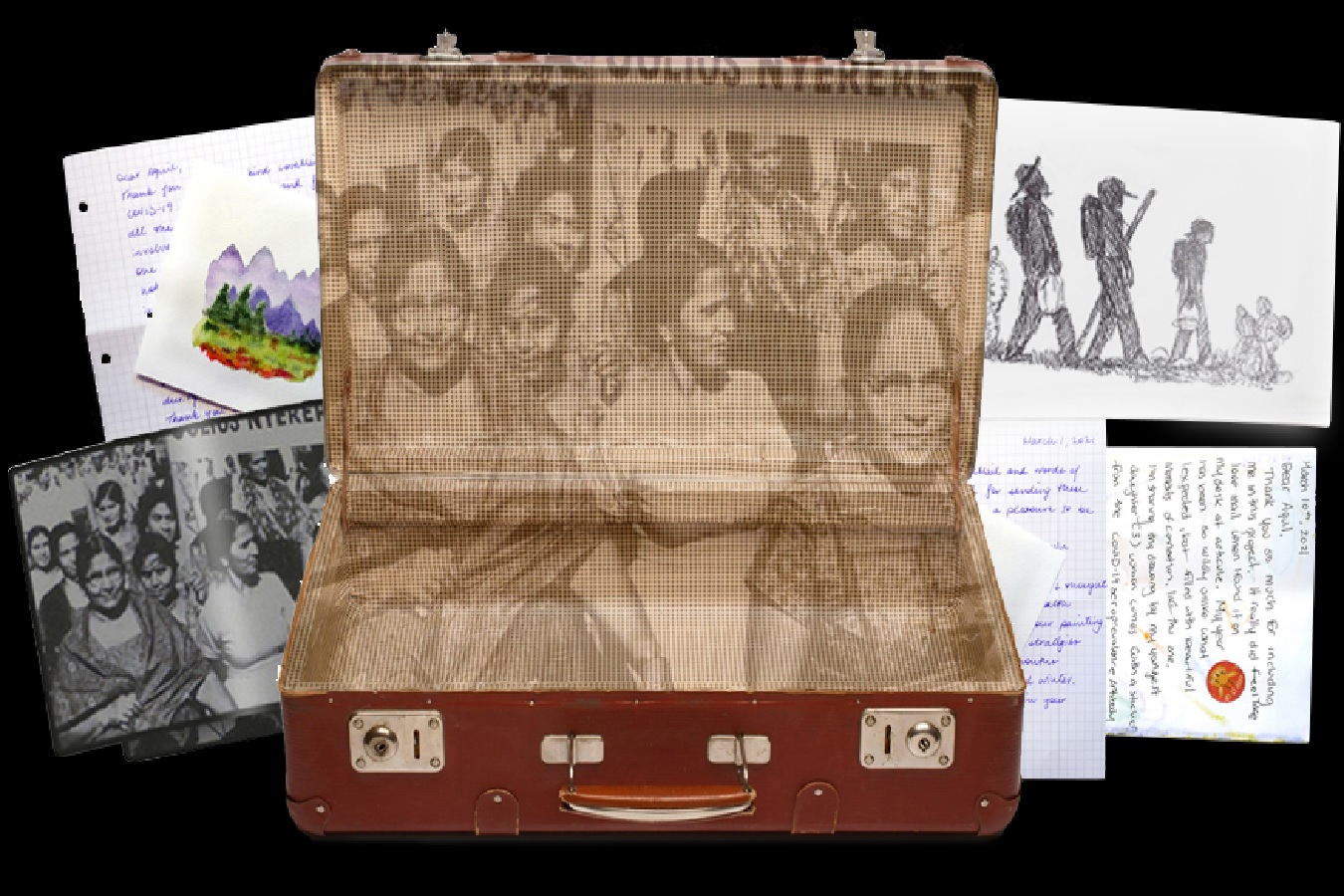
- Programs & Services
- Learning & Development
- Health & Wellness
- Faith & Traditions
- Economic & Financial Planning
- Community Engagement
- Support Services
- News
- Upcoming Events
- Watch Now
- Opportunities
- the.ismaili
- Feedback
- Login

“To me, when framing the concept of a 'random act of kindness', it’s random often in the sense of not knowing the person. It’s not random that there has to be a roll of the dice, but then it feels random if you don’t know the person because why would you do a nice thing for someone you don’t know?” asks visual artist, Aquil Virani.
Virani defines a random act of kindness as the intent to de-personalize a stranger by putting something out in the world when you are trying to make someone’s day “Kindness is in the intention and the gesture”, shares visual artist, Aquil Virani.“Kindness is in the intention and the gesture,” he says. “I think acknowledging humanity is a key part of it because that’s often what it’s about. People just want to be seen or to be understood and acknowledged. We have the power to do that all the time by a quick gesture.”
As a visual artist, many of Virani’s projects are centered around the gesture of gift-giving, which he says are often planned acts of kindness that are random for the person on the receiving end.
Virani points to his latest project, “Our Immigrant Stories” which exhibited at Pier 21 at the Canadian Museum of Immigration in Halifax, featuring collages, collaborative artwork, and a book.
“I asked people to nominate an immigrant hero in their lives, someone who has impacted them, whether they are part of their family or a friend, whether alive or maybe one of their ancestors, an immigrant hero in their lives,” he explains. “That question causes people to look left. Who in my life could I nominate? Did my parents immigrate? Grandparents, did they immigrate? Did I immigrate? Who do I know that has immigrated? The kind of question of who to nominate then creates this occasion to reflect a bit about the role of immigration in your life and the courage that it takes to immigrate and set up a new life.”
The immigration story is one the Ismaili community in Canada is well versed in, having first arrived in the 1970’s with the determination to build a strong foundation for a secure future.
“There’s one image I’m thinking of in particular where the story was about a Muslim man who talked about his dad, who is basically grandpa’s age, and he said ‘Bapa had to start all over again in Canada and he’s my immigrant hero,’” says Virani. “He has a common immigrant story of having a life in a country that isn’t Canada, having a degree being certified and having that certification not recognized, so the story was about ‘Bapa is now working as a paralegal and he had to start from the bottom again as an adult. And we’re so proud of him.’”
The gifts, according to Virani, are the reactions and emotions his work invokes for those who made submissions, creating a meaningful moment of reflection for them to share with loved ones, as well as receiving the portraits he’s created.“Not everyone gets portraits made of them or art made for them. We have busy lives,, it’s sort of nice when someone takes an interest in your story, especially someone you don’t know, it even makes it more meaningful,” says Virani. “I like being that person for someone, the person who makes those nice things.”
Virani says his intentions behind all of his projects is to bridge a divide among people, using art as a tool to build connections, empathy, and find common ground.
“I think we need more of that in almost every issue that quags us as a human society,” says Virani. “We need empathy and understanding, we need to build our understanding of other people’s struggles so that we can understand each other and where we’re coming from. We need to be able to communicate with each other to find out what our shared values are.”
While art is the gift that keeps on giving for Virani, his suggestion for others to exhibit their own random acts of kindness is to act with intent.
“You should feel empowered to do that, and it’s just as lovely as if you just randomly decided to pay for someone’s groceries once than if you made a whole project about it.”
“At what point, if you do a random act of kindness over and over again, does it lose its randomness? And does that matter?”, poses Aquil Virani.
By Zayn Jinah